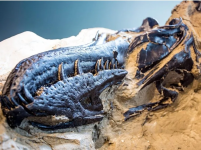
Canadian-bred cow wins World Dairy Expo Holstein show | The Western Producer
A cow bred in Saskatchewan, from Lovholm Holsteins of Balgonie, is the Grand Champion Holstein at the 2025 World Dairy Expo.
 www.producer.com
www.producer.com

 www.producer.com
www.producer.com
does it say eh?
Canadian-bred cow wins World Dairy Expo Holstein show | The Western Producer
A cow bred in Saskatchewan, from Lovholm Holsteins of Balgonie, is the Grand Champion Holstein at the 2025 World Dairy Expo.www.producer.com
Miss Mennonite Saskatchewan.No, but it has been awarded the title of Miss Saskatchewan and is the odds-on favorite for Miss Canada.
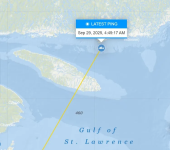
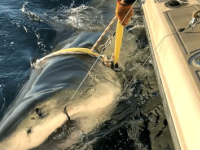

 instagram.com
instagram.com


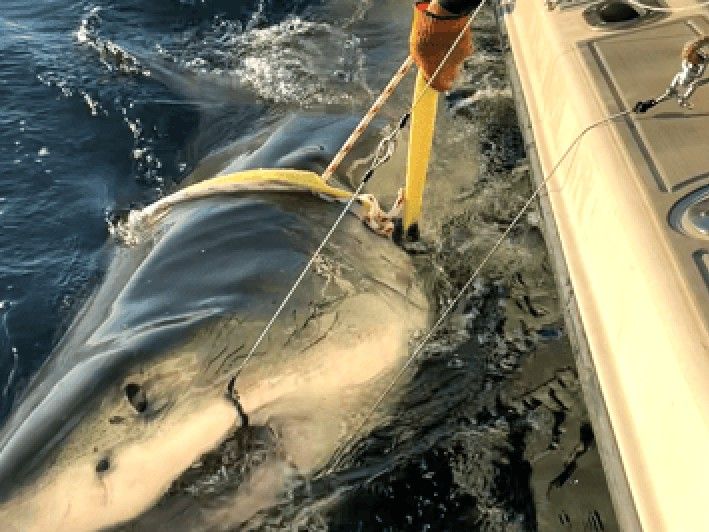
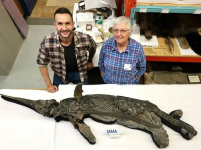
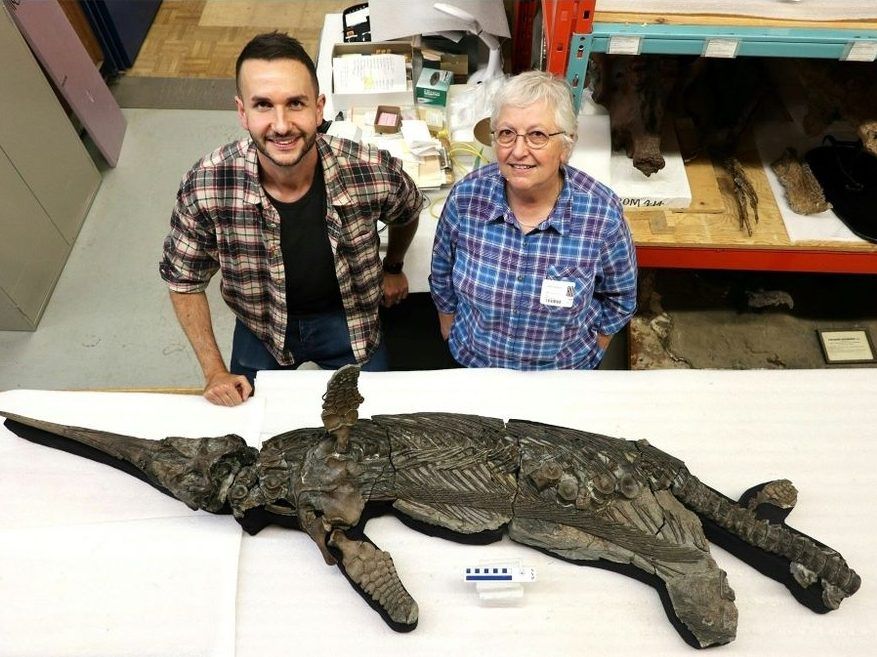
![new-orleans-ancient-headstone[1].jpg new-orleans-ancient-headstone[1].jpg](https://forums.canadiancontent.net/data/attachments/29/29805-4772a4d57951187a922d49c9ded6a915.jpg)



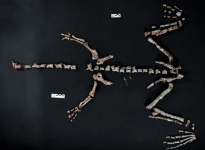
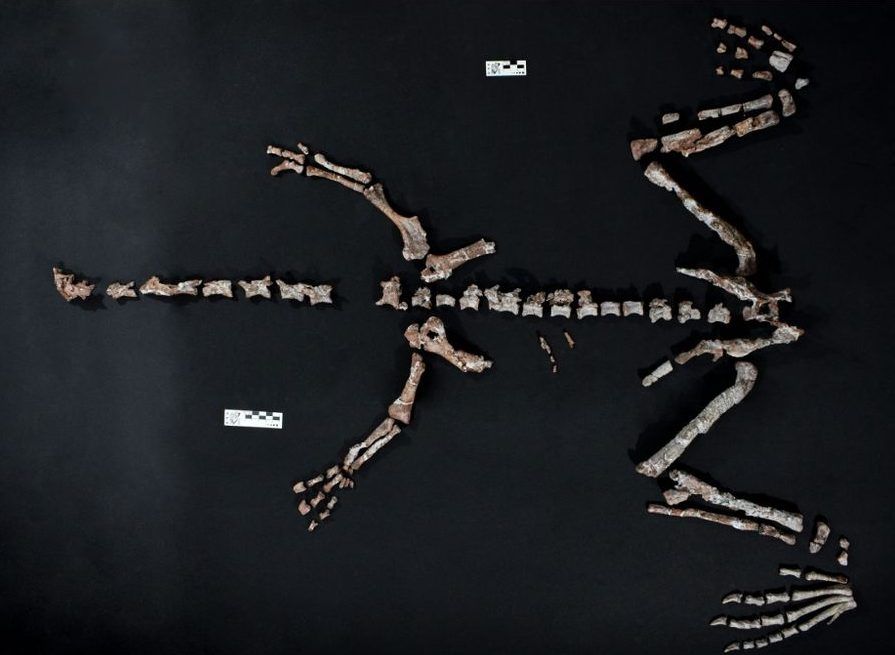
Long necked frog.One of world's oldest dinosaurs discovered in Argentina
The almost complete skeleton of the small long-necked reptile was found at an altitude of 9,842 feet
Author of the article:AFP
AFP
Published Oct 16, 2025 • 1 minute read
The almost complete skeleton of the small long-necked reptile, named "Huayracursor Jaguensis," has been found in Argentina.
The almost complete skeleton of the small long-necked reptile, named "Huayracursor Jaguensis," has been found in Argentina.
BUENOS AIRES — Argentinian scientists have found fossilized bones of one of the world’s oldest dinosaur species in the Andes Mountains, the CONICET research agency announced on Wednesday.
A paleontological team led by the institute found the almost complete skeleton of the small long-necked reptile, named Huayracursor Jaguensis, at an altitude of 3,000 meters (9,842 feet) in Argentina’s northwest.
The team found part of the dinosaur’s skull, a complete vertebral column extending to the tail, and nearly intact forelimbs and hindlimbs, said CONICET.
The discovery was published in Nature magazine, with the authors saying it could inform studies into evolution.
Agustin Martinelli, one of the authors, said that the Huayracursor is estimated to have roamed the earth between 230 and 225 million years ago, making it one of the oldest dinosaurs in the world.
The species lived at the end of the Triassic period, a geological era in which the first dinosaurs and the ancestors of mammals started to appear.
The species lived at the end of the Triassic period, a geological era in which the first dinosaurs and the ancestors of mammals started to appear.
The species lived at the end of the Triassic period, during which the first dinosaurs and the ancestors of mammals started to appear, the researchers said.
Although the discovered species is part of a lineage of herbivorous dinosaurs that includes long-necked giants, the researchers noted that an adult Huayracursor Jaguensis only measured about two meters in length and weighed approximately 18 kilograms.
View attachment 31645

One of world's oldest dinosaurs discovered in Argentina
The almost complete skeleton of the small long-necked reptile was found at an altitude of 9,842 feet in Argentina's northwest.torontosun.com





Why bother growing brains in a dish? Just raise processor people from birth.Scientists use human mini-brains to power computers
Author of the article:AFP
AFP
by Daniel Lawler
Published Oct 17, 2025 • 3 minute read
Sixteen brain organoids, connected to electrodes, inside an incubator at the lab of Swiss start-up FinalSpark.
Sixteen brain organoids, connected to electrodes, inside an incubator at the lab of Swiss start-up FinalSpark. Photo by Fabrice COFFRINI /AFP
Vevey (Switzerland) (AFP) — Inside a lab in the picturesque Swiss town of Vevey, a scientist gives tiny clumps of human brain cells the nutrient-rich fluid they need to stay alive.
It is vital these mini-brains remain healthy, because they are serving as rudimentary computer processors — and unlike your laptop, once they die, they cannot be rebooted.
This new field of research, called biocomputing or “wetware”, aims to harness the evolutionarily honed yet still mysterious computing power of the human brain.
During a tour of Swiss start-up FinalSpark’s lab, co-founder Fred Jordan told AFP he believes that processors using brain cells will one day replace the chips powering the artificial intelligence boom.
The supercomputers behind AI tools like ChatGPT currently use silicon semiconductors to simulate the neurons and networks of the human brain.
“Instead of trying to mimic, let’s use the real thing,” Jordan said.
A screen showing the activity of the neurons, which is also displayed on the company’s website. (Fabrice COFFRINI/AFP)
A screen showing the activity of the neurons, which is also displayed on the company’s website. (Fabrice COFFRINI/AFP) Photo by Fabrice COFFRINI /AFP
Among other potential advantages, biocomputing could help address the skyrocketing energy demands of AI, which have already threatened climate emissions targets and led some tech giants to resort to nuclear power.
“Biological neurons are one million times more energy efficient than artificial neurons,” Jordan said. They can also be endlessly reproduced in the lab, unlike the massively in-demand AI chips made by companies like behemoth Nvidia.
But for now, wetware’s computing power is a very long way from competing with the hardware that runs the world.
And another question lingers: could these tiny brains become conscious?
– Brain power –
To make its “bioprocessors,” FinalSpark first purchases stem cells. These cells, which were originally human skin cells from anonymous human donors, can become any cell in the body.
FinalSpark co-founder Fred Jordan believes that processors using brain cells will one day replace the chips powering AI. (Fabrice COFFRINI/AFP)
FinalSpark co-founder Fred Jordan believes that processors using brain cells will one day replace the chips powering AI. (Fabrice COFFRINI/AFP) Photo by Fabrice COFFRINI /AFP
FinalSpark’s scientists then turn them into neurons, which are collected into millimetre-wide clumps called brain organoids.
They are around the size of the brain of a fruit fly larva, Jordan said.
Electrodes are attached to the organoids in the lab, which allow the scientists to “spy on their internal discussion,” he explained.
The scientists can also stimulate the organoids with a small electric current. Whether they respond with a spike in activity — or not — is roughly the equivalent of the ones or zeroes in traditional computing.
Ten universities around the world are conducting experiments using FinalSpark’s organoids — the small company’s website even has a live feed of the neurons at work.
Benjamin Ward-Cherrier, a researcher at the University of Bristol, used one of the organoids as the brain of a simple robot that managed to distinguish between different braille letters.
Biocomputing aims to harness the evolutionarily honed — yet still mysterious — computing power of the human brain. (Fabrice COFFRINI/AFP)
Biocomputing aims to harness the evolutionarily honed — yet still mysterious — computing power of the human brain. (Fabrice COFFRINI/AFP) Photo by Fabrice COFFRINI /AFP
There are many challenges, including encoding the data in a way the organoid might understand — then trying to interpret what the brain cells “spit out,” he told AFP.
“Working with robots is very easy by comparison,” Ward-Cherrier said with a laugh.
“There’s also the fact that they are living cells — and that means that they do die,” he added.
Indeed, Ward-Cherrier was halfway through an experiment when the organoid died and his team had to start over. FinalSpark says the organoids live for up to six months.
At Johns Hopkins University in the United States, researcher Lena Smirnova is using similar organoids to study brain conditions such as autism and Alzheimer’s disease in the hopes of finding new treatments.
Biocomputing is currently more “pie in the sky,” unlike the “low-hanging fruit” use of the technology for biomedical research — but that could change dramatically over the next 20 years, she told AFP.
– Do organoids dream of electric sheep? –
All the scientists AFP spoke to dismissed the idea that these tiny balls of cells in petri dishes were at risk of developing anything resembling consciousness.
Jordan acknowledged that “this is at the edge of philosophy,” which is why FinalSpark collaborates with ethicists.
FinalSpark employee Flora Brozzi gives the brain cells the fluid they need to survive. (Fabrice COFFRINI/AFP)
FinalSpark employee Flora Brozzi gives the brain cells the fluid they need to survive. (Fabrice COFFRINI/AFP) Photo by Fabrice COFFRINI /AFP
He also pointed out that the organoids — which lack pain receptors — have around 10,000 neurons, compared to a human brain’s 100 billion.
However much about our brains, including how they create consciousness, remains a mystery.
That is why Ward-Cherrier hopes that — beyond computer processing — biocomputing will ultimately reveal more about how our brains work.
Back in the lab, Jordan opens the door of what looks like a big fridge containing 16 brain organoids in a tangle of tubes.
Lines suddenly start spiking on the screen next to the incubator, indicating significant neural activity.
The brain cells have no known way of sensing that their door has been opened, and the scientists have spent years trying to figure why this happens.
“We still don’t understand how they detect the opening of the door,” Jordan admitted.
View attachment 31656View attachment 31657View attachment 31658View attachment 31659

'Wetware': Scientists use human mini-brains to power computers
This new field of research aims to harness the evolutionarily honed yet still mysterious computing power of the human brain.torontosun.com
![tyrannosaur-mystery_299597494-e1761841019413[1].jpg tyrannosaur-mystery_299597494-e1761841019413[1].jpg](https://forums.canadiancontent.net/data/attachments/30/30089-2e3ff29cd3a2dae692a089a1358980f2.jpg)
